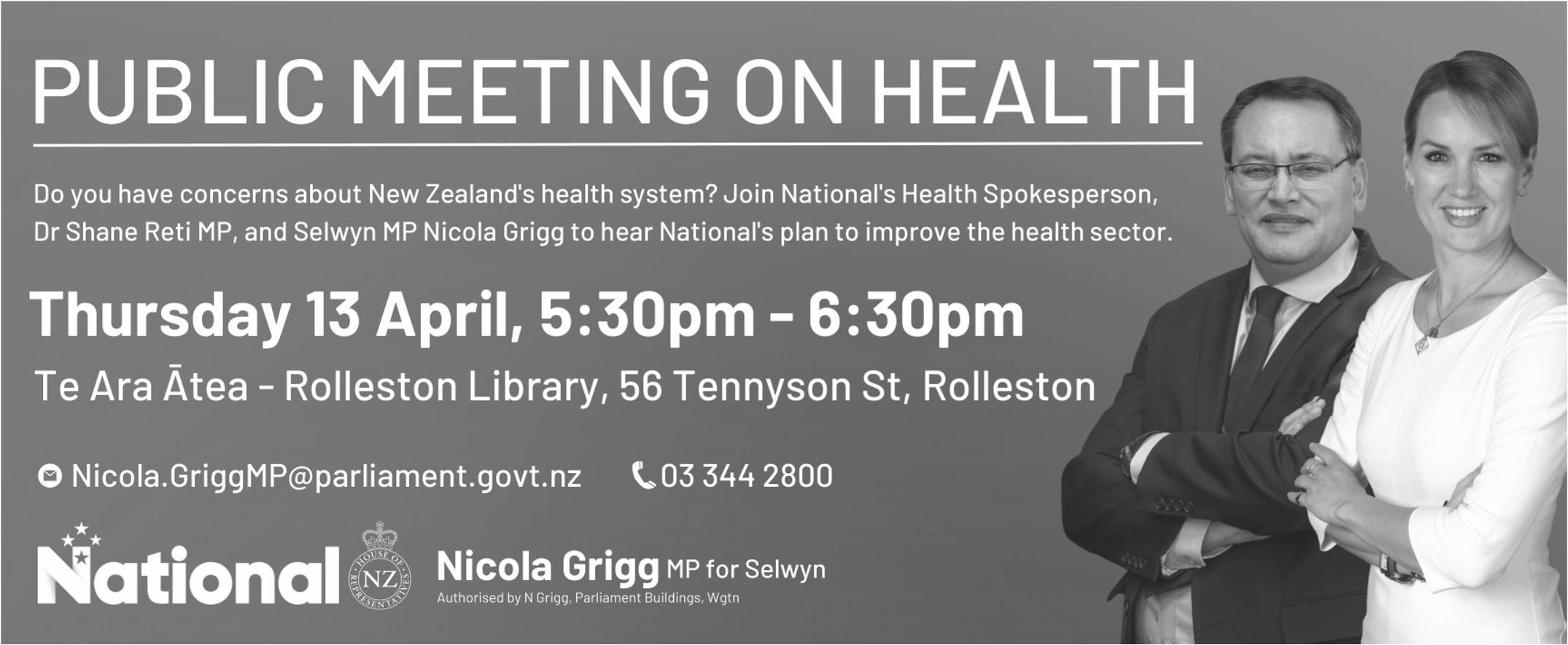
2 minute read
NICOLA GRIGG - OPINION PIECE
Twenty five percent of the population of Rolleston is under fifteen years of age.
As the fastest growing district in New Zealand, Selwyn is home to four high schools, twenty eight primary schools and fifty six early learning centres. Therefore, it stands to reason, education is a critical component to our community. Getting it right is even more critical.
Advertisement

As I get around the schools in our district it is patently clear to me just how passionate, dedicated and extraordinarily hard-working our teachers, principals and boards of trustees are. Without them, it’s fair to say, we as a community would be lost.
But teachers have increasingly been coming to see me outside of school hours to express just how difficult life is for them. On the back of three years of pandemic-induced upheaval, they are burnt out - they aren’t being given the tools and support they need, and many talk of how the kids they teach deserve better from the system.
If we can form a government later this year, National will ensure every child gets a worldclass education, so when they leave school, they can lead the life they want - and our plan is to empower teachers and schools to do this.
The current state of education in New Zealand is alarming. Education achievement has been in decline for the last thirty years, and a recent NCEA pilot shows two thirds of secondary school students failed to meet minimum standards in reading, writing and maths, while ninety eight percent of Decile One Year 10 students failed a basic writing test.

This is utterly unacceptable. That’s why National has announced our ‘Teaching the Basics Brilliantly’ policy which will ensure every child has the skills they need in reading, writing, maths and science to set them up for further success.
Firstly, National will require all primary and intermediate schools to teach an hour of reading, an hour of writing and an hour of maths, on average, every day.
Secondly, National will re-write the curriculum, so it says what must be taught each year in reading, writing, maths and science to every year group in primary and intermediate schools.
Currently, the curriculum is far too loose. It does not give teachers clear guidance about what to teach and when.
Thirdly, National will require schools to assess student progress in reading, writing and maths at least twice a year every year from Year 3 to Year 8, with clear reporting to parents.
Finally, we will ensure teachers and trainee teachers spend more time learning how to teach the basics. We will also provide them with more classroom tools and lesson plans to help them teach reading, writing, maths and science.
We will set a target of eighty percent of Year 8 students being at or above the expected curriculum level for their age in reading, writing, maths and science by 2030.
We will also aim to return New Zealand students to the top ten in the world in maths, reading and science, measured by the OECD’s PISA rankings, by 2033. If New Zealand is to have internationally competitive incomes and living standards, we need a world-class education system that starts with teaching the basics brilliantly.
Nicola Grigg, Selwyn MP.






